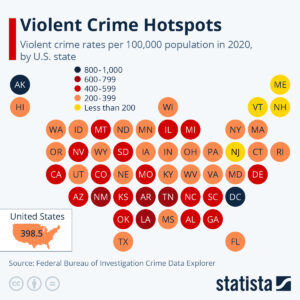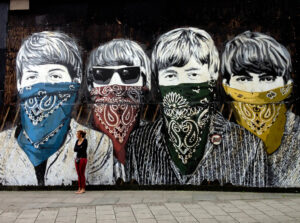Disclaimer
Before continuing through the text, please know there is mature content, including potential triggers, in this content.
Chapter 1: History of Deviancy

The APA Dictionary of Psychology defines as “any behavior that differs significantly from what is considered appropriate or typical for a social group” (APA, 2023). Deviant behavior is easily described as behavior or actions that go against against social norms as well as acceptable social behavior. Not all deviancy is considered an criminal offense.
This means that different areas, states, and even countries have their own view of deviancy. For now, we will look at deviant behaviors within the United States and later in this book, we will look at deviancy outside of the United States.
History of Deviancy
The earliest documentation of expected and acceptable code of behavior could be found in what was known as Mesopotamia (now Iraq). This intolerance of deviant behavior amongst several different reigns of power, the king in power determined rules or laws his subjects must abide by. Laws and deviant behaviors were determined by the palace as was handing down punishment ranging from fines to death. Fines may not have necessarily been money, more so, it may be crops, livestock, or textiles.
Review the following timeline, starting more recently with the well-known Code of Hammurabi and moving back in history.
Deviancy in the United States
In the U.S., some deviancy is minor, where other forms negatively impact those around and/or violate state and federal laws. For example, each state can create its own laws of deviant behavior, such as minor consuming of alcohol. In Oregon and Nebraska, it is legal for minors to consume alcohol with their parents so long as it is for a family event referred to as a “family exception”. In Hawaii and South Carolina, it is legal for minors to possess alcohol. In Texas and Missouri, it is legal for parents to purchase alcohol for their minor children. Where, in Indiana, minors drinking would be a misdemeanor offense of “minor consuming” and parents purchasing alcohol for their children would be a misdemeanor offense of “contributing to the delinquency of a minor”.

In all U.S. states, violent crime like rape and murder are considered crimes of deviant behavior which have far extended damage to not only the victim(s), but also violates the expectation of a civilized society.
In 1791, American political activist, Thomas Paine (1737-1809) wrote a book called “The Rights of Man” in which he discussed expectations and successes of a civilized society without deviant behaviors in the United States:
“To understand the nature and quantity of government proper for man, it is necessary to attend to his character. As Nature created him for social life, she fitted him for the station she intended. In all cases she made his natural wants greater than his individual powers. No one man is capable, without the aid of society, of supplying his own wants, and those wants, acting upon every individual, impel the whole of them into society, as naturally as gravitation acts to a centre. But she has gone further. She has not only forced man into society by a diversity of wants which the reciprocal aid of each other can supply, but she has implanted in him a system of social affections, which, though not necessary to his existence, are essential to his happiness. There is no period in life when this love for society ceases to act. It begins and ends with our being.”

In early America, The Salem Witch Trials were punishing men and women who were considered deviant by allegedly practicing witchcraft determined by religious zealots who felt themselves the judge, jury and executioner. The Boston Tea Party was considered deviant as it went against the government’s laws. Fast forward to 1964 in Liverpool, England where the world met a new rock band called The Beatles. The Beatles were considered as deviant in that their music pushed against acceptable social norms and because they were different, eccentric, had long hair, and preformed their music loudly. The youth of that time were gunning to push against the system of repression, embraced The Beatles and what they represented. To conclude, deviancy has always existed in some way in the United States—some of it minor and other criminal. However, as we proceed forward, the focus on criminality of deviancy, social/biological/psychological origins of deviancy, and the subsequent violence that comes with
it.
References
American Psychological Association (2023). Deviance. Retrieved on September 8, 2023 from https://dictionary.apa.org/deviance
History (2022). Thomas Paine. Retrieved on September 8, 2023 from https://www.history.com/topics/american-revolution/thomas-paine
a personality disorder characterized by various oddities of thought, perception, speech, and behavior that are not severe enough to warrant a diagnosis of schizophrenia. Symptoms may include perceptual distortions, magical thinking, social isolation, vague speech without incoherence, and inadequate rapport with others due to aloofness or lack of feeling. It is included in both DSM–IV–TR and DSM–5.

